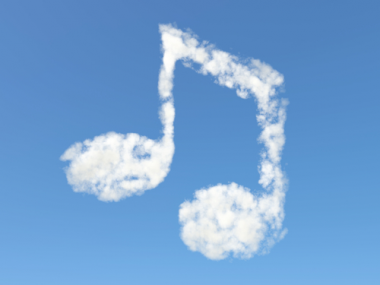Google’s Music Locker Now Works Like Apple’s and Amazon’s. Except It’s Free.
Remember back in 2011, when all the big tech companies were working hard to create music “locker” services that allowed you to store your music in the cloud so you could listen to it whenever you wanted?
Well, all of the big players — Apple, Amazon and Google — have them now. But it’s hard to tell if all the effort was worthwhile.
Perhaps we all use them, and they’re so commonplace that no one thinks to mention it anymore. But my hunch is that they haven’t gotten much uptake from mainstream users. It may be telling, for instance, that none of the three competitors do much boasting about usage. Because all of them like to produce big numbers when they can.
It’s possible, but not likely, that today’s news will change that: Google is rolling out a “scan and match” feature for its locker service,* which means it should be much, much faster to move songs from your computer to their servers — just like Apple and Amazon already offer.
The twist is that Apple and Amazon charge users $25 a year for their service, and Google’s will remain free.
Free to users, that is. Amazon and Apple give most of their subscriber fees to the big music labels and publishers, as a sort of piracy fee — since the tech companies don’t try to verify that you’ve legally acquired the music you’re moving to the cloud, the assumption is that many of the tracks they’re uploading are technically illegal. The payout is effectively a sin tax.
But since Google isn’t collecting any money from users, it will just pay the labels directly. Google won’t comment on its deal, but music sources tell me that instead of paying a fee for each user, Google is writing the labels big up-front checks.
The other tweak with Google’s service is a technical one: While Apple and Amazon will essentially replace sub-par digital tracks with higher-fidelity files that you can download back onto your machines, Google won’t swap out your old files with better-sounding ones for download. But it will let you stream those songs in a high-bitrate format of 320 kbps. (Apple and Amazon offer 256 kbps downloads, if you’re still keeping score).
Will any of that matter? Probably not: It’s possible that someone who has invested time and money moving their songs into Amazon’s or Apple’s cloud will swap platforms for $25 a year. But that seems like a pretty narrow group of people.
More likely is that it makes it more appealing for a new Android user, who hasn’t thought about any of this stuff before, to move their stuff to Google’s cloud. And Google is convinced that when that happens, they’ll be more likely to buy music (and other stuff) from Google’s store, and that will help keep them locked in to Android.
And Google figures that’s worth paying for.
*Google’s free scan and match service already existed in Europe; today marks its U.S. debut.
Courtesy:Peter Kafka



Comments
Post a Comment